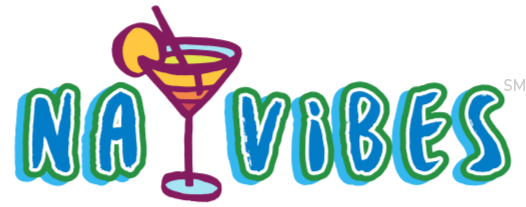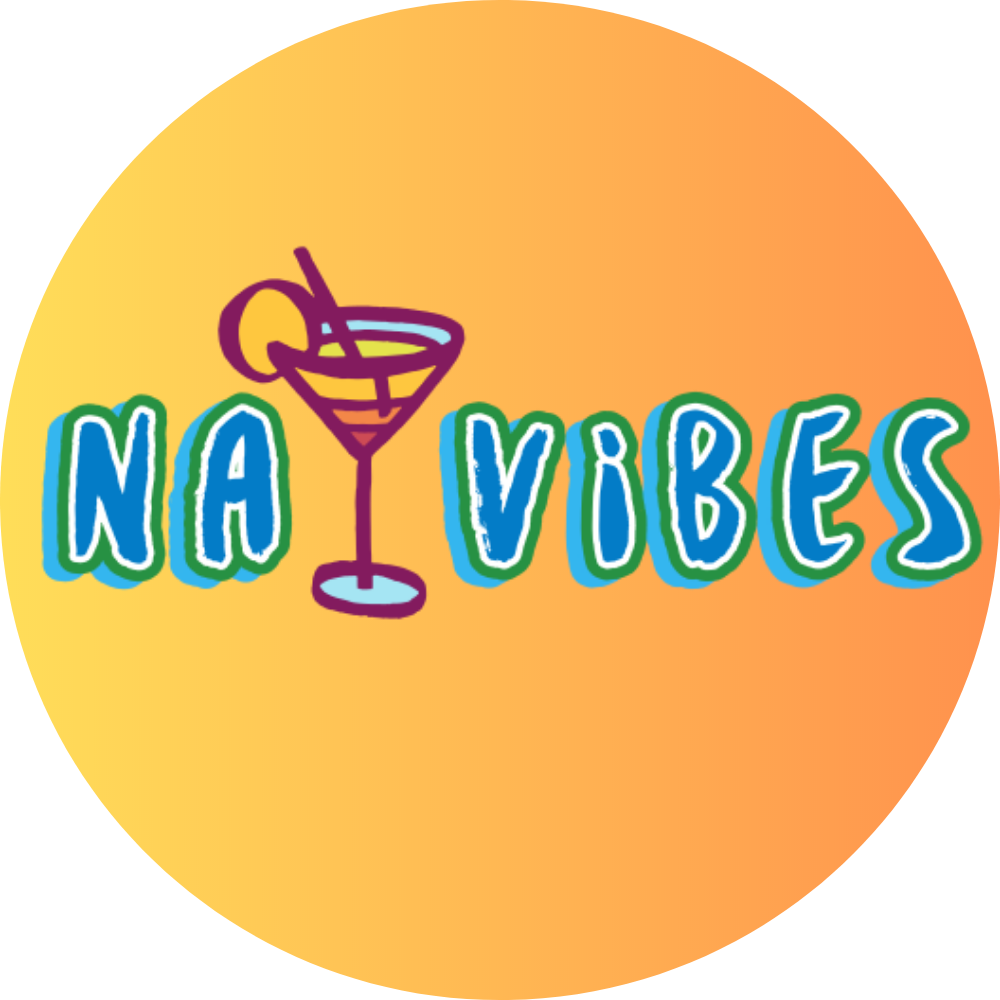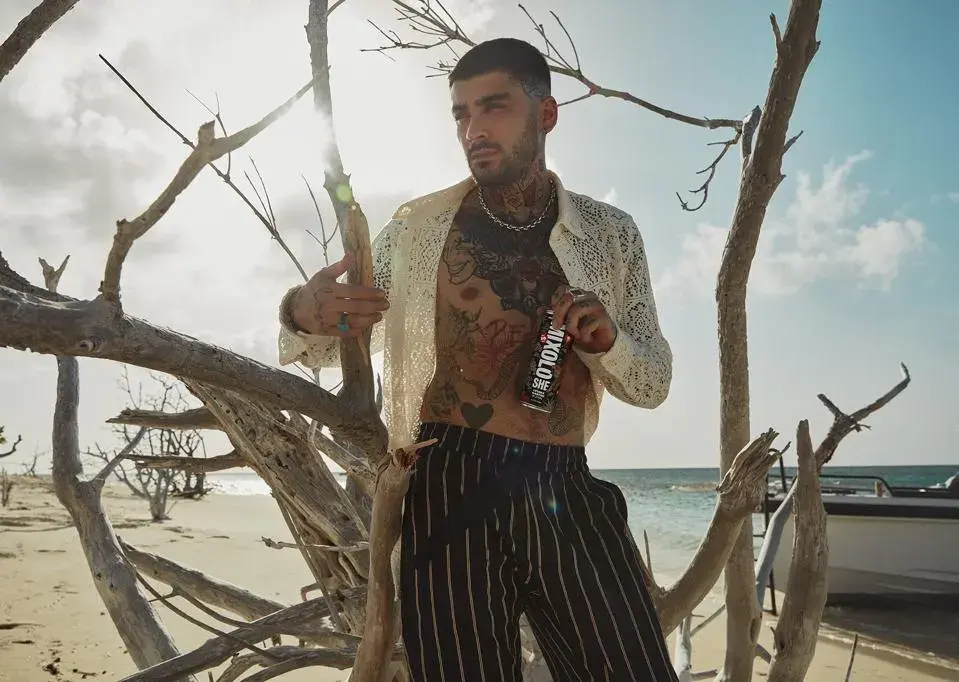No booze, no problem: How nonalcoholic drinks are shaking up the beverage industry
- Joel Stoner

- Jul 2, 2022
- 7 min read
01/06/2022 Kelly Mccarthy via GMA
The taste of bitter botanical tinctures and sweet and spicy spirits of traditionally alcoholic drinks are becoming more accessible than ever to people who prefer their beverages without the booze.
Every new year, the term "Dry January" rolls off the tongue of people who have decided to take a break from drinking alcohol.

The choice to focus on a personal goal like eliminating or reducing booze may have seemed daunting in years past -- especially for those who still wish to partake in the social activities attached with having a drink at a bar or restaurant -- but nonalcoholic drinks have matured into a major player in the beverage space.
The nonalcoholic drink market has boomed, especially over the last two years of the pandemic, and now ranges from bottled brands and celebrity-backed labels to spiritless retail shops and beverage directors accommodating high-quality booze-free options beyond sugary mocktails.

"There was a 315% increase in online non-alcoholic and low-alcoholic be
verage dollar sales in the latest 12 months versus a 26% increase in alcoholic beer, wine and spirits e-commerce sales," NielsenIQ reported last October at the Distilled Spirits Counc
il's 2021 DISCUS conference. "78% of non-alcoholic beverage buyers are purchasing alcoholic beer, wine or spirits."
As people reconsider their relationship with what they sip, "Good Morning America" tapped
a few top players with businesses that are building their brands and fostering a new and intentional cultural shift.
Expanding market and novel concepts
"It's so exciting to to be a part of this, this movement," said Ian Blessing, a veteran California-based beverage director and sommelier turned zero-proof bitters founder. "It's an alternative to traditional forms of recovery, while at the same time not being recovery. It's about tasty drinks. It's about doing something healthy and doing something better for your life and your well-being and your happiness -- and if you want it to be, it can also be a massive tool to help you."

After decades of combined experience working in bars and restaurants -- including as sommeliers at Napa Valley's famed three Michelin star restaurant The French Laundry -- he and wife Carly Blessing adopted an alcohol-free lifestyle nearly two years ago following the birth of their first son and set out to create a nonalcoholic product they noticed missing from the space: alcohol-free bitters.
Although the alcohol content is low in traditional bitters, All The Bitter is the first handmade, small-batch version using glycerin, water and apple cider vinegar so that the product is absent of alcohol in every step of the recipe.

"Bitters are the spice rack of the bar. They're not going to make up the majority of the drink, but they're incredibly important to the overall balance," Blessing explained. "And it was kind of shocking that there weren't many options [with] how many nonalcoholic spirits there are now."
"It's something that you stock in your bar cart at home that's a great option for when your fully sober friend wants a bitters and soda, but you can also turn around and make yourself a standard Old Fashioned with it -- not only are you going to get the amazing flavor of our aromatic bitters, but you're also going to get the wellness benefits that we've tied into our bitters and is pretty unique."
He explained that while "these are first and foremost cocktail bitters, meant as flavorings for drinks," and modeled after classic cocktail bitters flavors, All The Bitter has created an adaptogen-rich concoction of ingredients and "taken that idea of wellness and a daily tonic and run with it. Every single ingredient in our bitters is there to complete the flavor profile, but also add a wellness benefit to your everyday life."
For Nick Bodkins, CEO and co-founder of Boisson, a New York-based nonalcoholic bottle and mixology shop with five brick-and-mortar stores and an online retail arm, "the most exciting part of this industry is the number of brands launching looking for product market fit."
"There are incredible brands coming on line like Figlia, Pentire, Spiritless and others from startups," he said, "and then brands from storied winemakers like Leitz that are producing incredible products for our customers looking for an alcohol alternative."
One such popular brand sold by Boisson is Optimist, a distilled botanical alcohol alternative helmed by husband and wife team Tom Johnstone and Lisa Farr Johnstone. The pair saw "a thriving non-alc space coming into existence in the U.K. over the last four years," she said, "but not much going on" in Los Angeles apart from sugary mocktails that people were rapidly veering away from.

Their first three highly popular varietals -- bright, fresh and smokey -- evoke the tasting notes typically found in high-end vodka, gin and mezcal respectively, but made with clean ingredients.
"People have realized that great drinks are about the flavor that they carry, and the quality that they have. And they're not just about the booze that's inside the glass," Johnstone said.
Raising a glass to ritual, connection
Both Blessing and the Optimist team agree that nonalcoholic options include a couple of pivotal ingredients that drinking culture has long leaned on -- ritual and connection.
"When you can enjoy an IPA, or an Old Fashioned, or Negroni, along with everybody else, suddenly going out and enjoying other people's company is fun again," Blessing said after experiencing the thrill of discovering great-tasting nonalcoholic options when he and his wife dropped drinking.
Blessing said that for many people, especially those who work in bars and restaurants where "alcohol abuse is rampant -- and not something that's really talked about," deciding not to drink can spark insecurities or a feeling of judgment. "If you're confined to a soda or sparkling, it just doesn't have the same punch as everybody else that's drinking a beer or a cocktail. You really feel left out." Johnstone said their inspiration with Optimist "was a lot about bringing people together over a drink."

"Alcohol at some point does become exclusive. If you don't fancy having an alcoholic drink, the chances are, you might not go out," he said. "Really, it's about inclusivity, it's about not being anti-booze. It's about making sure that there's options for people, even if they don't want alcohol in their glass. There's a social connection that you can still get with people."
Thinking back to his own experience in bars, Blessing said he "had the same stigma that a lot of bar and restaurant managers do, which is, the non-alcoholic options aren't very good. So why am I going to serve them?"
"Once bar managers start to realize that they're missing out on sales and they can charge the same amount, I hope and I think that we're going to see more and more bars and restaurants add these drinks to their menu. Right now it's an issue of education." He added, "It's a lack of people tasting and using them correctly. When you make a cocktail properly with these high-end alternatives as you would a regular spirit, it works beautifully."
"Trick Dog, one of the best cocktail bars in the country, has a quarter of the menu dedicated to NA cocktails," Blessing said of the San Francisco hot spot that has recognized the cost of goods and quality association is the same. "There's one option in each section and it's the same price. People will come out and drink if you include inclusive beverage options."
Johnstone reiterated that "education has been the biggest challenge for us over the last year" and said he's seen "more progressive bars and restaurants really embrace" the addition of nonalcoholic drinks in the shift from the trend that started in people's homes last year. "I'm excited about the normalization of the space," Bodkins said. "Blake Lively just launched Betty Buzz, which we're excited to carry. Katy Perry teamed up with Morgan McLachlan from Amass to launch De Soi. We're not focusing on the celebrity part of these products coming to market, but it's so great to get the awareness that NA can be good -- or in their case great -- and that it's a normal part of your day to day for people looking to drink less or take some time off."
Mission-driven drinks
"The reason we're doing this is not to make money. This is 100% a mission-driven company," Blessing explained. "We are here for social change and social impact. We are here because we have been over-drinkers ourselves for our entire lives. And we have kids now. And quitting drinking completely changed our lives and our kids' lives and our family's lives." All The Bitter committed to bettering the environment with organic, ethically wild foraged and non-GMO ingredients as well as a partnership with 1% for the Planet -- "to donate 1% of annual sales to environmental causes so that our kids' generation has a planet to call home."
"We were also highly motivated by the idea of creating a company together that would make meaningful change through a mission with its products," Blessing said. "There's quite similar stories, I think from a lot of the founders," Farr Johnstone said of Optimist, which she explained as "a confluence of many things" beyond the beverage itself.
"We stuck on the name of Optimist and a feeling that we really wanted to make meaningful change for ourselves and for society, and then really for the planet as well," she said. "We wanted to have also a tangible giveback to our local community, and as we roll out, [we are] looking at identifying nonprofit partners helping to provide mental health access to mental health services for underserved communities and young people in underserved communities."
"The NA movement is not going anywhere, there is staying power beyond Dry January -- and just like our bitters and a lot of these spirits, there's a ton of function beyond just nondrinkers," Blessing said.
See the original article at abcnews.com: https://abcnews.go.com/GMA/Food/booze-problem-nonalcoholic-drinks-shaking-beverage-industry/story?id=82065981
If the content contained herein violates any of your rights, including those of copyright, you are requested to immediately notify us via email using the address: hello (at) navibes.com







Comments